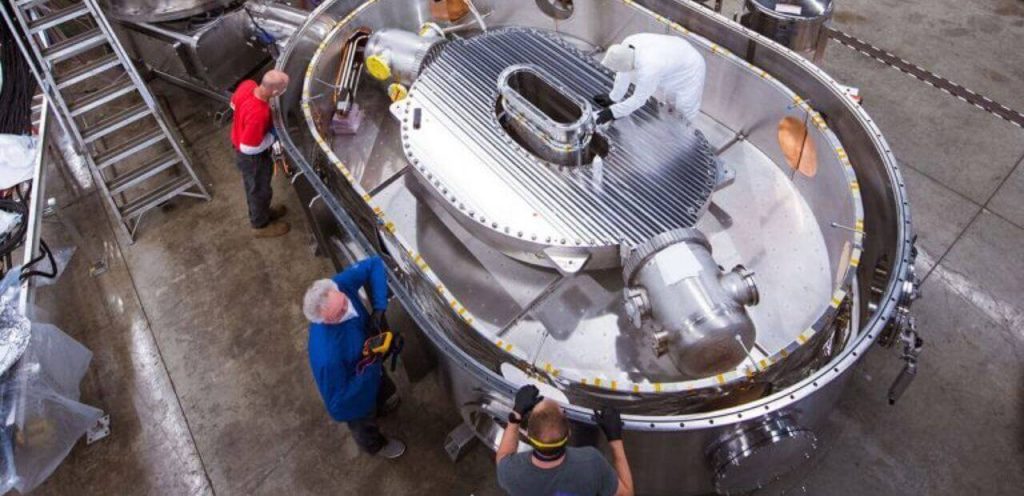A Diploma in Fisheries in Bangladesh equips students with specialized knowledge in aquatic resource management. The program typically spans two years, focusing on sustainable fishing techniques and aquaculture.
Embarking on a Diploma in Fisheries opens a gateway to understanding the dynamic field of aquaculture and marine science in Bangladesh. Through this specialized curriculum, students gain practical and theoretical expertise in the management of fisheries resources, fish farming, and the processing of fishery products.
The coursework is designed to align with the country’s evolving fishing industry, ensuring graduates can contribute effectively to the sector’s growth. As Bangladesh is a country with abundant water resources, including the Bay of Bengal and numerous rivers, there is a heightened necessity for professionals skilled in optimizing these assets. This educational path not only primes students for a career enhancing the productivity of the fisheries sector but also emphasizes sustainable practices that minimize environmental impacts. It is an ideal choice for those passionate about marine ecosystems and seeking to promote eco-friendly fisheries in the region.
The Lure Of Fisheries: A Sector Overview
The sea whispers its secrets to those who listen closely, and Bangladesh’s fisheries sector resonates with possibilities. Rich in aquatic biodiversity, it casts a wide net of opportunities for budding professionals. Here’s an immersive dive into the sector’s scope, importance, and allure for career seekers.
Bangladesh’s Blue Economy
Bangladesh’s vibrant blue economy is brimming with potential. Its extensive marine life supports countless livelihoods and feeds millions.
- 660 kilometers of coastline teem with diverse marine species.
- Fisheries contribute 4.37% to GDP, fueling economic growth.
- Around 18 million people depend on this sector for their livelihoods.
- Exports surge, with frozen fish and seafood reaching global markets.
Thus, a diploma in fisheries emerges as a ticket to this booming blue economy. Is Fisheries the Right Career for You?
Is Fisheries The Right Career For You?
Choosing a career in fisheries sparks a journey of passion and discovery. Evaluate if this path aligns with your aspirations:
- Do you have a fascination with aquatic life?
- Are you ready to explore the depths of marine biology?
- Does the idea of sustainable seafood production excite you?
- Are you driven by the potential of pioneering aquaculture innovations?
If these questions resonate with you, a diploma in fisheries might be your calling.
Charting The Course: Diploma In Fisheries
Diploma in Fisheries is a steppingstone to a rewarding career in Bangladesh’s aquatic industries. This course prepares students for the challenges of fisheries management, aquaculture, and marine science. Let’s dive into the key components of this vital curriculum.
Key Components Of The Curriculum
Coursework in the Diploma in Fisheries includes:
- Marine Biology: Study of life in the oceans
- Aquaculture Techniques: Farming aquatic species
- Fishery Resources Management: Sustainable practices
- Fish Processing: Techniques for value addition
- Water Quality Management: Keeping habitats healthy
Practical Vs. Theoretical Learning
The Diploma balances hands-on training with classroom instruction. Here’s how:
| Practical Learning | Theoretical Learning |
|---|---|
| Field trips to fisheries | Learning fish biology |
| Lab work in water quality | Studying fishery laws |
| Harvesting practices | Economics of fisheries |
Real-world experiences complement academic lessons. Students not only read about fish but also raise them. They not only study ponds but also test their waters. This blend of learning ensures graduates can thrive in fisheries work.
Navigating Academic Waters
Admission Prerequisites
Before setting sail on this academic journey, students must ensure they meet the necessary criteria. The Diploma in Fisheries program in Bangladesh typically requires:- A minimum SSC (Secondary School Certificate) completion,
- Passing grades in science subjects,
- A genuine interest in marine biology and aquaculture.
Top Institutes For Fisheries Diploma
Sail through some of the premier institutions that offer a robust foundation in fisheries:| Institute Name | Location | Key Features |
|---|---|---|
| Bangladesh Fisheries Research Institute | Mymensingh | Pioneering research, state-of-the-art facilities |
| Sylhet Agricultural University, Faculty of Fisheries | Sylhet | Renowned faculty, diverse programs |
| Chittagong Veterinary and Animal Sciences University | Chittagong | Hands-on training, modern curriculum |
Diving Deep: Specializations And Subjects
Aquaculture And Fish Genetics
Starting with Aquaculture and Fish Genetics, students learn the ropes of fish farming and breeding. This specialization is crucial for sustainable fish production. Here are key topics covered:- Hatchery Management: Techniques for breeding fish in controlled environments.
- Fish Nutrition: Essential diets for optimal fish growth and health.
- Genetics in Aquaculture: Breeding strategies for genetic improvement.
Marine Biology And Oceanography
Marine Biology and Oceanography are captivating subjects for sea enthusiasts. They focus on life under the ocean’s surface and the physical properties of the marine environment. Key areas include:| Marine Biology | Oceanography |
|---|---|
| Study of marine species and ecosystems | Analysis of ocean currents and tides |
| Conservation of marine habitats | Marine geology and seabed mapping |
| Impact of humans on marine life | Climate change effects on oceans |
The Currents Of Opportunity: Career Prospects
Government Sector Roles
Fisheries diploma holders find ample opportunities within government agencies. These roles often involve:- Resource management: Ensuring sustainable fishing practices.
- Research and development: Studying aquatic life to boost fish stocks.
- Conservation efforts: Protecting endangered species and habitats.
Private Sector And Entrepreneurship
The private sector also presents diverse avenues for fisheries graduates:- Hatchery management: Running fish breeding centers.
- Aquaculture farming: Growing fish for commercial sale.
- Quality control: Ensuring the safety of fish products.
Making Waves: Success Stories
Alumni Achievements
Groundbreaking innovations and sustainable practices mark the alumni’s journey. Here are a few notable contributions:- Award-winning fishery management models
- Research on aquaculture development published in prestigious journals
- Creation of eco-friendly feed leading to healthier fish populations
Transforming Local Fisheries
Diploma holders are revolutionizing the way local fisheries operate. Positive impacts on both economy and ecology are noteworthy.| Initiative | Impact |
|---|---|
| Community Fish Farming | Employment growth and skill development in rural areas |
| Conservation Programs | Enhanced biodiversity and sustainable fishing practices |
| Technological Advancements | Increase in production efficiency and market reach |
Fishing For Skills: What You’ll Learn
Technological Proficiency In Fisheries
The modern fisheries sector demands tech-savvy individuals. Students gain hands-on experience with the latest aquatic technology. Key areas covered include:- Automated feeding systems to ensure optimal growth of fish stock
- Use of GIS and GPS in tracking fish populations and movements
- Water quality management tools for sustaining aquatic life
Research Methodology And Data Analysis
Rigorous research is the backbone of effective fisheries management. The diploma introduces students to:- Designing robust studies in diverse aquatic environments
- Statistical tools and software for analyzing fisheries data
- Interpreting findings to inform policy and conservation strategies

Credit: harrisburgregionalchambercredcpa.growthzoneapp.com
Reeling In The Knowledge: Core Modules
Fisheries Resource Management
Stewardship of fishery resources lies at the heart of sustainable fishing industries. Students learn best practices to maintain fish stocks. Critical subjects include:- Fish breeding and genetics
- Population dynamics
- Fishery economics
Aquatic Environment Management
A pristine aquatic environment supports thriving fish populations. This module covers:| Topic | Description |
|---|---|
| Water Quality | Assessing and controlling factors that affect habitat health. |
| Habitat Conservation | Designing effective strategies for habitat protection. |
| Pollution Control | Minimizing impacts of pollutants on aquatic systems. |
The Educational Ecosystem: Faculty And Facilities
Expert Instructors
Expert instructors are the cornerstone of the Fisheries Diploma program in Bangladesh. They bring a wealth of real-world experience and advanced academic qualifications to the classroom. These instructors are recognized for their research contributions and are deeply committed to teaching excellence.On-campus And Field Facilities
State-of-the-art on-campus and field facilities enrich the learning experience for students enrolled in the Fisheries Diploma. Study is hands-on, with access to modern laboratories, hatcheries, and aquaculture farms.- Laboratories equipped with the latest aquatic research technology
- Hatcheries for practical breeding experiences
- Aquaculture farms to apply cultivation techniques
- Collaborative projects with leading fisheries institutions
Catch Of The Day: Internships And Training
Embracing the blue economy, Bangladesh offers a dynamic Diploma in Fisheries program. The course includes practical training essentials, like internships, to help students understand the nuts and bolts of the fishing industry. Elevate your skills beyond classroom theory with real-world fishery experiences. Get hooked on the Catch of the Day: Internships and Training.
Industrial Attachments
Industrial attachments are a staple of the fisheries diploma. They place students in real fish farms and processing plants. This immersion turns novices into pros. Benefits include:- Understanding industry workflows
- Networking with professionals
- Applying academic knowledge
| Duration | Focus Areas | Benefits |
|---|---|---|
| 3-6 months | Hatchery, Aquaculture, Processing | Skills development, Expert contacts |
Hands-on Experiences
Hands-on experiences advance your know-how. The diploma emphasizes practice. Participate in:- Marine excursions
- Species identification
- Water quality analysis
Riding The Tide: Further Studies
Advancing To B.sc. In Fisheries
Diploma holders often pursue a Bachelor of Science in Fisheries. This degree offers in-depth learning. It covers:- Aquaculture practices
- Marine biology
- Fishery resources management
- Oceanography
| University | Location | Program Duration |
|---|---|---|
| Bangladesh Agricultural University | Mymensingh | 4 years |
| Sher-e-Bangla Agricultural University | Dhaka | 4 years |
Postgraduate Studies Abroad
Bangladeshi students often dream of studying abroad. A diploma can be a stepping stone. Students can specialize further with postgraduate studies. Available courses include:- Master of Science in Marine Science
- Master of Science in Fisheries and Aquaculture
- Ph.D. in Fisheries Science
- USA – known for research and tech in fisheries
- Canada – offers diverse marine ecosystems to study
- Australia – provides courses with a focus on tropical fisheries
Bridging The Net: Alumni Networks
Connecting With Industry Leaders
The Fisheries alumni community is a dynamic asset, enabling fresh graduates to form connections with established industry leaders. Networking opportunities, such as workshops and webinars, are regularly organized, facilitating knowledge sharing and potential job placements.- Exclusive Events: Alumni get access to invite-only events featuring top-level executives.
- Job Boards: A curated list of industry-relevant job openings is maintained for alumni.
- Online Forums: These platforms encourage interaction between alumni and leaders.
Mentorship And Guidance
Mentorship bridges the gap between academic learning and real-world experience. Alumni networks connect novices with mentors who provide guidance, enhance skills, and help navigate career paths. This ongoing support is crucial for career advancement in the fisheries sector.| Mentorship Benefits | Outcome |
|---|---|
| One-on-One Support | Personalized career advice and feedback |
| Industry Insights | Current trends and technologies updates |
| Professional Growth | Skill development for niche areas |
Sustainability And Conservation Efforts
Ecosystem Management
The curriculum of the Fisheries Diploma emphasizes holistic ecosystem management. It trains future professionals to understand and sustain the intricate balance of aquatic life. Key areas include:- Aquatic health monitoring
- Species diversity protection
- Habitat conservation
Conservation Policies And Practices
Effectively managing fishery resources requires a deep understanding of the laws and regulations that govern them. The diploma course covers:- Local and international conservation laws
- Wildlife protection acts
- Sustainable fishing techniques

Credit: pubs.acs.org
Fishing In Digital Waters: E-learning Resources
Online Coursework And Simulation
Today’s technology bridges theoretical learning with virtual practice. Online courses cover key topics in fisheries. Learners study water ecosystems, fish health, and breeding from anywhere. Simulations provide near-real experiences. They mimic natural fish environments. These tools aid in practical understanding of fishery management. Features and benefits of e-learning in fisheries:- Accessible course materials, 24/7
- Interactive simulations of aquatic systems
- Self-paced learning
- Real-time assessments
Webinars And Virtual Workshops
Advanced learning extends to live sessions. Webinars connect learners with experts. They discuss latest trends and techniques in fisheries. Workshops offer practical exercises, facilitated by professionals.| Event Type | Benefits | Frequency |
|---|---|---|
| Webinars | Expert knowledge, Q&A sessions | Monthly |
| Workshops | Hands-on activities, Networking | Quarterly |
Sailing Through Challenges: Student Support Systems
Counseling And Guidance Services
Embarking on higher education can be a turbulent journey. Support and advice breed confidence and clarity for students in the Diploma in Fisheries program. A range of counseling services fosters a nurturing environment:- Personal counseling – Helps students manage personal challenges.
- Academic advice – Offers strategies for educational success.
- Career counseling – Guides students on their professional path.
Financial Aid And Scholarships
Financial hurdles should never anchor down a student’s academic voyage. Various financial aid options and scholarships are available:| Type of Support | Description | Eligibility |
|---|---|---|
| Grants | Non-repayable financial assistance. | Based on need. |
| Scholarships | Awarded for academic or extracurricular excellence. | Merit-based. |
| Work-study programs | Part-time work opportunities. | For enrolled students. |
Seaworthy Credentials: Certification And Recognition
Accreditation Of Programs
Bangladeshi institutions offering a diploma in Fisheries must receive accreditation from the government. This ensures the curriculum meets specific educational standards. Candidates look for accredited programs to secure a recognized qualification.- Ministry of Education – oversees certification.
- Bangladesh Technical Education Board (BTEB) – provides specific accreditation.
- Benchmarking against national education standards.
International Equivalence
The diploma in Fisheries from Bangladesh holds value on an international level. Accredited programs align with global competency frameworks. This allows graduates to pursue careers or further education abroad.| Country | Equivalency Status |
|---|---|
| India | Acknowledged by relevant authorities |
| Thailand | Comparable to local diplomas in Fisheries |
| Malaysia | Accepted for employment and study |
Investing In Nets: Funding And Resources
Grants For Fisheries Research
Finding the funds to fuel innovative fisheries research is crucial. Bangladesh offers several grants aimed at supporting studies that enhance the fishery industry:- Government Grants: There are public funds allotted for environmental and agricultural advancements, which include fisheries.
- International Partnerships: Collaborations with global organizations often yield financial support for cutting-edge research.
- Educational Institutions: Universities frequently have programs designed to sponsor research by students pursuing a diploma in fisheries.
Bank Loans For Entrepreneurs
For the ambitious fishery entrepreneur, securing capital is a major step. A variety of bank loans are available:| Type of Loan | Purpose | Terms |
|---|---|---|
| Microcredit | Start small-scale operations | Favorable interest rates |
| Commercial Loan | Expand existing businesses | Customized repayment structures |
| Agricultural Loan | Purchase equipment | Subsidized rates for farmers |

Credit: www.thelancet.com
The Captain’s Diary: Day In The Life Of A Fisheries Student
Classroom Sessions
Dive into theory and practices. Classroom learning forms the backbone of a Fisheries student’s day. Here’s a snippet:- Marine Biology: Understand aquatic creatures.
- Fish Nutrition: Learn what fish eat for growth.
- Conservation Techniques: Protect our fragile ecosystems.
Fieldwork And Experiential Learning
After theory comes practice. Students don the hat of a researcher. Their classroom extends to the great outdoors.- Sample Collection: Hunt for species and record data.
- Habitat Assessment: Study environments for fish growth.
- Hands-on Experience: Net casting and boat maneuvering become second nature.
Harvesting Success: Job Placement And Career Services
Campus Recruitment Drives
Several institutions in Bangladesh boast strong ties with the fisheries industry. They regularly conduct campus recruitment drives. These events attract local and national fisheries companies.- Students meet potential employers.
- They engage in interviews and networking sessions.
- Live projects and internships are often offered on the spot.
Career Counseling
Career services at these institutions also include expert career counseling. Students gain insights into the fisheries sector and learn how to navigate their career path.| Service | Description |
|---|---|
| Personalized Guidance | Counselors work individually with students. |
| Resume Building | Assistance with crafting specialized CVs for the fisheries sector. |
| Interview Preparation | Tips and mock sessions to improve interview skills. |
Discover The Depths: Innovations In Fisheries Education
New Age Technologies And Tools
Technology has reshaped how we learn about the underwater world. Students now wield tools that once seemed like science fiction. From satellite imagery to acoustic telemetry, they study marine environments with precision.- Autonomous underwater vehicles (AUVs) explore regions beyond human reach.
- GIS mapping tools turn data into visual stories of aquatic life.
- Mobile applications bring real-time information right into students’ hands.
Collaborative Research Initiatives
Today’s fisheries education thrives on partnership. Collaborative research bridges the gap between academics and the fishing industry. Students and experts unite to tackle pressing marine challenges. Together, they innovate sustainable fishing practices and conservation strategies.| Collaboration | Impact |
|---|---|
| University Partnerships | Wide-ranging research opportunities |
| International Projects | Global knowledge-sharing |
| Local Fishing Communities | Practical, hands-on insights |
Frequently Asked Questions For Diploma In Fisheries In Bangladesh
What Is A Diploma In Fisheries?
A Diploma in Fisheries is a specialized academic program in Bangladesh that focuses on fishery science, management, aquaculture, marine biology, and related technologies.
How Long Does The Program Take?
Typically, the Fisheries Diploma program spans over two years, covering theoretical and practical learning modules.
Who Can Enroll In The Fisheries Diploma?
The program is open to students who have completed their secondary education, preferably with a science background.
What Career Options Are Available Post-diploma?
Graduates can pursue careers as aquaculture technicians, fishery officers, marine life researchers, or work in seafood processing units.
Are There Any Scholarships For This Program?
Yes, certain institutions in Bangladesh may offer scholarships to meritorious students for the Diploma in Fisheries program.
Conclusion
Embarking on a Diploma in Fisheries offers a promising future within Bangladesh’s dynamic aquaculture sector. It opens doors to abundant career paths, vital in bolstering the nation’s economy. By understanding aquatic ecosystems and honing practical skills, graduates emerge ready to tackle industry challenges.
Secure your spot in this thriving field and set sail for a rewarding profession.









